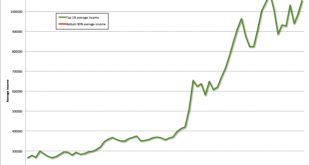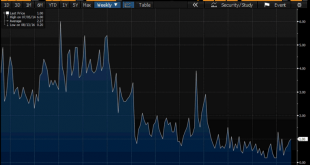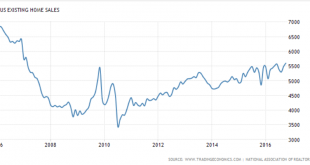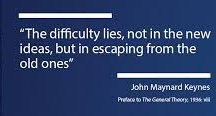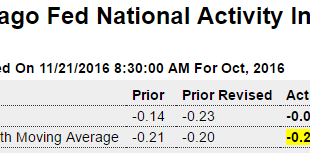from Asad Zaman This 1000 word article is the third in a series of posts on Re-Reading Keynes. It traces the impact of Keynesian theories on the 20th century, as necessary background knowledge for a contextual and historically situated study of Keynes. It was published in Express Tribune on 4 Nov 2016. The Global Financial Crisis (GFC) has created awareness of the great gap between academic models and reality. IMF Chief Economist Olivier Blanchard said that modern DSGE macroeconomic...
Read More »Class before Trumponomics, part 1
from David Ruccio Right now, after Donald’s Trump surprising victory and in the midst of the messy transition, everyone is curious about how the U.S. economy will change if and when the president-elect’s economic policies are enacted.* But first things first. We need to have a clear understanding of what the U.S. economy looks like now, during the uneven recovery from the Second Great Depression. In particular, it’s important to analyze the class dimensions of that recovery, even before...
Read More »Weak political leadership got us into this Brexit mess, weak economic leadership will leave us in it
Image from Jeff Djevdet – Flickr It will take Big Money to steer Britain through this rocky period. Instead, Chancellor Hammond has promised to continue slashing the very departmental expenditure essential to smooth the path. We must conclude that he does not wish to invest in a safe Brexit at all. We live in perilous times. The demand by millions of people for protection from austerity and globalisation has fuelled support for extreme right-wing parties across the world. The possible...
Read More »How Trump theft hurts you: thoughts to chew on over Thanksgiving dinner
from Dean Baker Donald Trump has basically come right out said that he intends to use the presidency to further enrich himself and his family. After refusing to follow long-established precedent and put his assets in a blind trust, he proclaimed, “the president can’t have a conflict of interest.” Of course the president absolutely can have a conflict of interest as speakers of the English language use the expression. If a president owns a large business empire, as does Mr. Trump, there...
Read More »Redbook retail sales, Mortgage purchase apps, PMI manufacturing, Consumer sentiment, New home sales
Notable only in that analysts are calling the latest 1% increase ‘strong growth’… First a big move down, now a rush to get in ahead of fed rate hikes. But still remains depressed by historical standards: Highlights Rising interest rates are causing some volatility in mortgage activity, with purchase applications for home mortgages increasing by an outsized, seasonally adjusted 19 percent in the November 18 week after falling 6 percent in the prior week, while refinancing...
Read More »Existing home sales, UK headline, Vehicle sales, India, Trump tweeting
These sales are reported based on actual closings, and they look to have flattened around the 5.5 million/yr rate. But that was before lenders hiked mortgage rates due to Trumpenomics frears, and mortgage purchase apps did drop a full 6% last week. And this number is not ‘population adjusted’: Talk about cheerleading- the order book remains in contraction: UK Factory Orders Rise in November: CBI The Confederation of British Industry order book balance rose to -3 in November...
Read More »Richard Rorty, postmodernism, and Trump
from David Ruccio Yes, the late Richard Rorty got it spot on: Members of labor unions, and unorganized unskilled workers, will sooner or later realize that their government is not even trying to prevent wages from sinking or to prevent jobs from being exported. Around the same time, they will realize that suburban white-collar workers—themselves desperately afraid of being downsized—are not going to let themselves be taxed to provide social benefits for anyone else. At that point,...
Read More »P2: Methodology for (Re)-Reading Keynes
from Asad Zaman The first post on Reading Keynes provided an outline of the reasons why this is a good idea. It is clear that economics is broken. We need a new macroeconomics for the 21st century, one which can solve the massive problems which humanity as a whole is facing on political, social, economic, and environmental dimensions. Keynes faced similar problems, and found solutions which guided economic policy in the mid twentieth century. It is always useful to absorb the insights of...
Read More »Sitglitz comes around
A new paper by Joseph Stiglitz (it might be that he has been holding these ‘heterodox’ (better: common sense) views for some time already): In the aftermath of the Great Recession, there is a growing consensus, even among central bank officials, concerning the limitations of monetary policy. This paper provides an explanation for the ineffectiveness of monetary policy, and in doing so provides a new framework for thinking about monetary policy and macro-economic activity. What matters is...
Read More »Chicago Fed, Japan, China, UK, US container counts, Euro area savings desires, Fed comment, Dividends comment
Still in the red: This is not a good sign for global demand. And Japan’s continuing trade surplus recently enhanced by the falling yen isn’t a positive for US GDP: Japan’s trade surplus grows 4.7-fold in October Nov 21 (Kyodo) — Japan’s trade surplus expanded 4.7-fold in October from a year earlier to 496.17 billion yen ($4.5 billion). The value of exports dropped 10.3 percent from a year earlier to 5.87 trillion yen while imports plunged 16.5 percent to 5.37 trillion yen....
Read More » Heterodox
Heterodox

